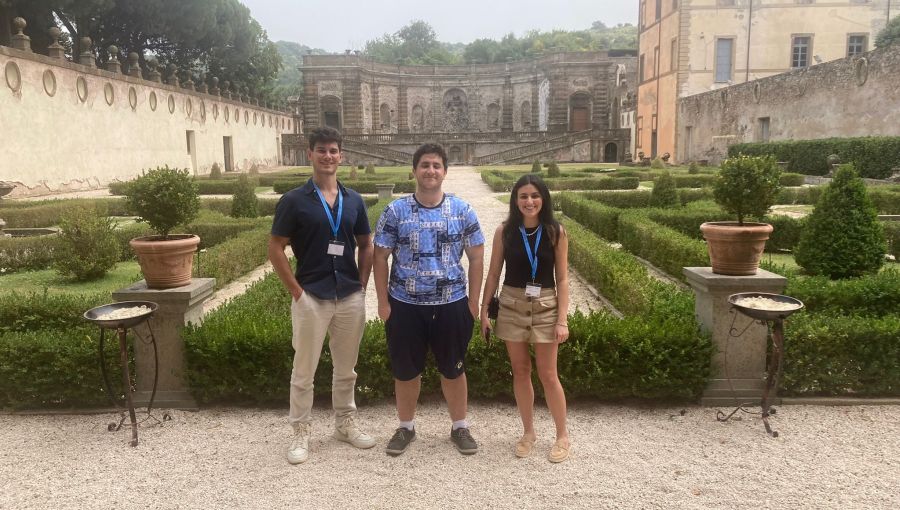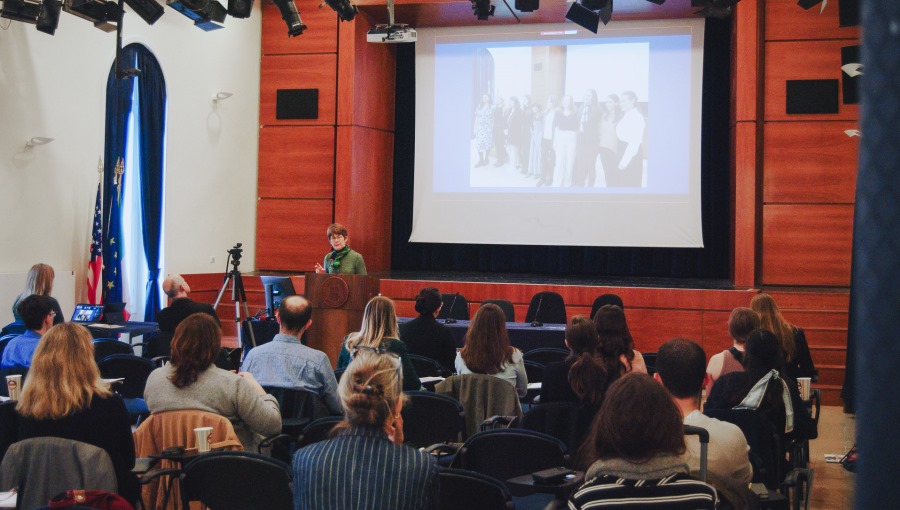JCU Service Learning Host Workshop on Project Management for Non-Profit Organizations

Alessio di Carlo leads the Project Management for Non-Profit Organizations workshop
On Thursday, March 16, 2017, JCU Service Learning – Combining Fieldwork and Education welcomed Alessio di Carlo, Development Project Trainer and Vice-President at CooperAction. Di Carlo led a workshop titled “Project Management in Non-Profit Organizations.” The JCU Service Learning Project’s aim is to promote co-curricular activities for students and graduates interested in working in the humanitarian field, in order to facilitate career development. Alessio Di Carlo is an accomplished professional in the humanitarian field. Starting as Management Engineer Consultant for multinational companies, he then founded CooperAction, an NGO based in Rome that promotes a culture of peace and civic engagement.
The focus of the workshop was the definition, or “non-definition,” as Di Carlo pointed out, of the Non Profit Sector. Examples of Non Profit Organizations successfully operating on today’s market are NGOs (Non-Governmental Organizations), social cooperatives, social businesses and enterprises, cultural associations, foundations, and religious organizations. Currently, in Italy there are over 300,000 Non Profit organizations, employing almost 6 million people. Di Carlo also underlined the growing interest of for-profit organizations and multinational companies in collaborating with the Non Profit Sector. Their aim is to reach higher levels of economic sustainability, which, combined with the use of social marketing, will allow them to reach larger audiences and customers.
A comparison with the For Profit Sector is fundamental in order to clarify the different objectives of the First (For Profit) and Third (Non Profit) Sectors. In terms of performance, namely production of goods and services, the For Profit and Non Profit realms overlap; however, their goals differ significantly. On the other hand, the activities of the Non Profit Sector are based on the vision of a participatory process in which the beneficiaries also own those goods and services. While international donors start pushing towards the Non Profit Sector, the First and Third Sector should learn from one another and intersect effectively in order to enhance their respective specialties. This means mid-long term strategies, differentiation, procedure standardization and professional development for the Non Profit Sector, and human resources participation, corporate social responsibility, and green marketing for the For Profit Sector.
In the final part of his workshop, Di Carlo analyzed the reasons for the failure of a significant amount of interventions in developing countries conceived and brought forward in the 80s (the Organization for Economic Co-operation and Development numbers speak of a failure rate of 80%). Many reasons were common to all: a low involvement of the stakeholders, a confusion between objectives and activities, a very limited risk analysis, no efficiency based monitoring, and a low attention to sustainability. Di Carlo subsequently explained the need for the development of a new model, the logic intervention chain, through the various types of project management that are used today in the Non Profit sector: The Project Cycle Management (PMC), the Goal Oriented Project Planning (GOPP), both popular in the EU; the Result Based Management (RBM), used by the United Nations. He concluded with analyzing the more modern models, such as the Business Model Canvas (BMC), extremely successful for start-ups, and the Theory of Change (TOC) model, which views the project in a dynamic way across time.





